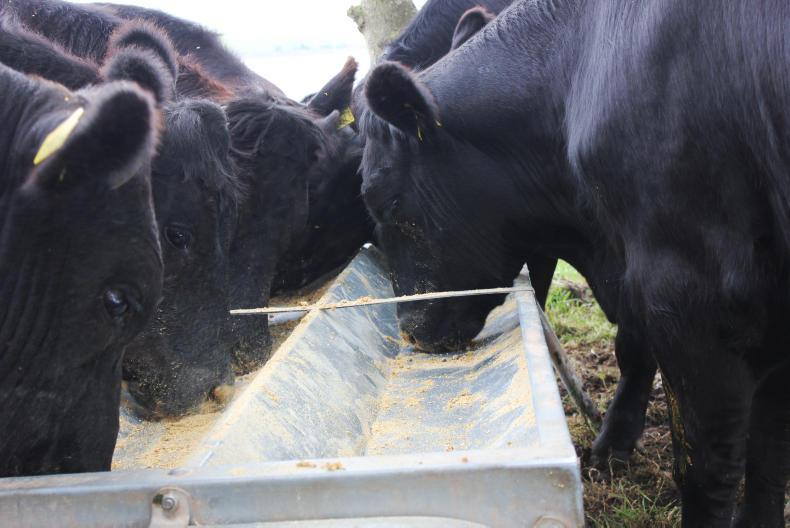With only two weeks until changes to the Agricultural Flat Rate Scheme (AFRS) come into effect, HM Revenue & Customs (HMRC) has provided industry representatives with an overview of the new scheme rules.
British Chancellor Rushi Sunak initially announced the changes to the scheme back in March 2020, with new entry and exit rules to AFRS applying from 1 January 2021.
Any farm business can join the scheme when their annual turnover from farming activity is below £150,000, but must leave the scheme when turnover goes above £230,000.
For those in the scheme, they cannot reclaim input tax, but in return can charge a flat-rate addition of 4% when selling goods to a VAT-registered business.
Traditionally, AFRS has been used by larger beef finishers in NI. It works for them as their main inputs (feed) are zero-rated, and they can charge an additional 4% on cattle sales (£56 on a £1,400 bullock).
For those still in the scheme, they are obviously in a stronger position to compete for cattle around mart rings
Under the current scheme, the main criteria on entry has been that you should stand to gain less than £3,000 in the year following an application. So, in the example above, that limits the business to just over 50 cattle in the first year.
But after that, there is no upper limit. However, it should be pointed out that HMRC has in the past removed some beef finishers from the scheme who were “found to be recovering substantially more as a flat-rate farmer than you would if you were registered for VAT in the normal way”. For those still in the scheme, they are obviously in a stronger position to compete for cattle around mart rings.
Burden
In documents obtained by the Irish Farmers Journal, HMRC makes clear that the amended AFRS “is designed to offer an alternative to the administrative burden of VAT for small farming businesses”.
While farmers should seek advice from their accountants, the documents suggest that those with a turnover (calculated on a 12-month period from the effective date of certification) already over £230,000 will be ineligible from 1 January 2021.
It is the responsibility of the business to self-declare when they no longer meet the eligibility criteria
“If you are currently a member of the AFRS, you will need to check to see if you are still eligible for the scheme when the changes come into effect,” states HRMC.
“It is the responsibility of the business to self-declare when they no longer meet the eligibility criteria for the AFRS,” the document adds.
HMRC currently estimates that there are between 1,700 and 2,000 businesses in AFRS across the UK. The changes taking effect from 1 January 2021 will apply equally across Britain and NI.
Read more
NI farmers win flat-rate VAT case
Chancellor changes flat rate VAT scheme
With only two weeks until changes to the Agricultural Flat Rate Scheme (AFRS) come into effect, HM Revenue & Customs (HMRC) has provided industry representatives with an overview of the new scheme rules.
British Chancellor Rushi Sunak initially announced the changes to the scheme back in March 2020, with new entry and exit rules to AFRS applying from 1 January 2021.
Any farm business can join the scheme when their annual turnover from farming activity is below £150,000, but must leave the scheme when turnover goes above £230,000.
For those in the scheme, they cannot reclaim input tax, but in return can charge a flat-rate addition of 4% when selling goods to a VAT-registered business.
Traditionally, AFRS has been used by larger beef finishers in NI. It works for them as their main inputs (feed) are zero-rated, and they can charge an additional 4% on cattle sales (£56 on a £1,400 bullock).
For those still in the scheme, they are obviously in a stronger position to compete for cattle around mart rings
Under the current scheme, the main criteria on entry has been that you should stand to gain less than £3,000 in the year following an application. So, in the example above, that limits the business to just over 50 cattle in the first year.
But after that, there is no upper limit. However, it should be pointed out that HMRC has in the past removed some beef finishers from the scheme who were “found to be recovering substantially more as a flat-rate farmer than you would if you were registered for VAT in the normal way”. For those still in the scheme, they are obviously in a stronger position to compete for cattle around mart rings.
Burden
In documents obtained by the Irish Farmers Journal, HMRC makes clear that the amended AFRS “is designed to offer an alternative to the administrative burden of VAT for small farming businesses”.
While farmers should seek advice from their accountants, the documents suggest that those with a turnover (calculated on a 12-month period from the effective date of certification) already over £230,000 will be ineligible from 1 January 2021.
It is the responsibility of the business to self-declare when they no longer meet the eligibility criteria
“If you are currently a member of the AFRS, you will need to check to see if you are still eligible for the scheme when the changes come into effect,” states HRMC.
“It is the responsibility of the business to self-declare when they no longer meet the eligibility criteria for the AFRS,” the document adds.
HMRC currently estimates that there are between 1,700 and 2,000 businesses in AFRS across the UK. The changes taking effect from 1 January 2021 will apply equally across Britain and NI.
Read more
NI farmers win flat-rate VAT case
Chancellor changes flat rate VAT scheme






 This is a subscriber-only article
This is a subscriber-only article











SHARING OPTIONS: